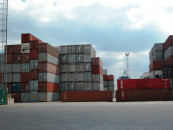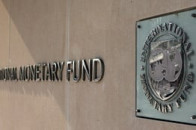Pushed by ADB: ECNEC approves Rs47b smart-metering project
Also approved 500KV Islamabad West substation, 20MW hydro power project in Gligit

Wencai Zhang. PHOTO: FILE
Headed by Finance Minister Ishaq Dar, the country’s highest development project approval authority sanctioned seven schemes costing Rs81.5 billion including smart meter projects.
The Asian Development Bank was aggressively pushing the smart meter projects despite some objections raised by the Planning Commission.
The smart meters will be installed in the jurisdictions of Islamabad and Lahore power distribution companies.
The ECNEC approved proposal of the Ministry of Water and Power for advance metering infrastructure projects in Rawalpindi circle, Taxila Division, and modern billing system for the entire company of IESCO at a cost of Rs16.9 billion, said the Finance Ministry after the ECNEC meeting.
A similar project for five division of LESCO Northern Circle, Central Circle and all four divisions of LESCO South Eastern Lahore at a cost of Rs30.3 billion was also approved, it added.

It was the second time in the last eight months that the ECNEC considered the smart meter projects. Earlier, in November last year, the ECNEC left the $470 million projects unapproved because the ministries of Planning and Reforms and Water and Power could not reconcile their differences.
The Planning Commission had asked the Ministry of Water and Power to provide a certificate that its recommended technology for smart meters was tested, suitable and reliable as per the local requirements.
The specifications of meters and system would meet local standards, local bidders would be allowed to participate and the cost of the projects would not be more than the price of similar projects executed in other parts of the world.
An official of the Planning Commission said that the Ministry of Water and Power has given an undertaking, addressing the concerns raised by the Commission.
“ADB Vice President Wencai Zhang, in his last visit to Pakistan, had taken up the issue of delay in approval,” said an official of the Economic Affairs Division.
Upon the conclusion of his visit to Pakistan, Zhang said the ADB had invested a lot in the energy sector to support reforms and remove bottlenecks, and it would continue investing in the sector.
ADB’s Country Director to Pakistan Werner Liepach said that the smart meter projects were part of the solution to the country’s energy sector woes.
The ECNEC also approved 500KV Islamabad West sub-station at a cost of Rs8.3 billion. While according approval, the chair emphasised that the environmental assessment may also be carried out prior to the implementation of the project as indicated in the proposal.
A proposal submitted by the Ministry of Kashmir Affairs and Gilgit Baltistan for construction of 20MW hydropower project at Hanzil, district Giligit was also approved at a cost of Rs6.3 billion.
The ECNEC further approved construction of model prison at H-16 Islamabad. The project will cost roughly Rs4 billion.
The Council, after discussion, acceded to proposal given by the Sindh Government regarding the ‘Sindh Resilience Project’ for strengthening flood embankments and construction of small dams including systems for improving resilience.
The project would cover districts of Dadu, Jamshoro, Malir, Hyderabad, Matiari, Thatta, Sajawal and Tharparkar and would be completed with a total cost of Rs10 billion.
Published in The Express Tribune, July 21st, 2016.
Like Business on Facebook, follow @TribuneBiz on Twitter to stay informed and join in the conversation.



















COMMENTS
Comments are moderated and generally will be posted if they are on-topic and not abusive.
For more information, please see our Comments FAQ